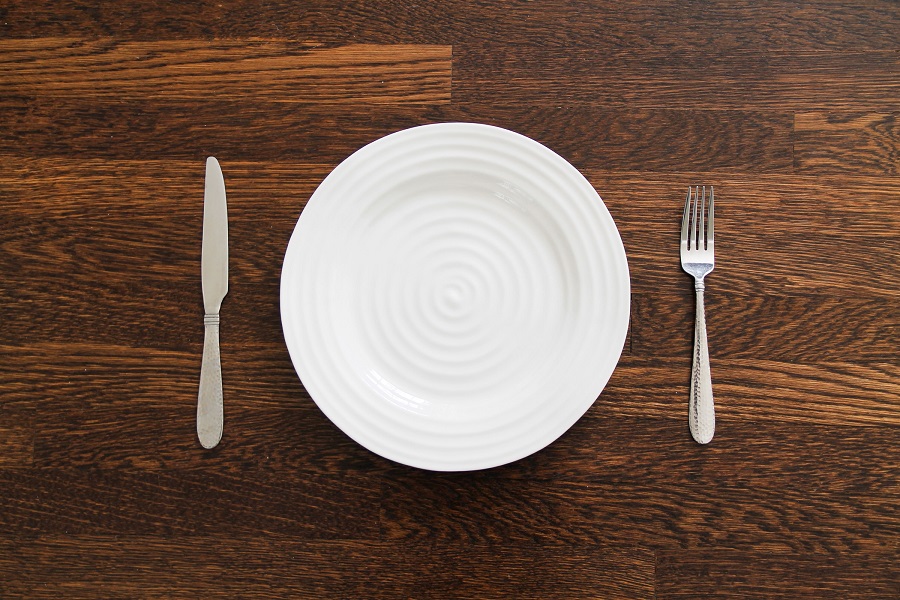Ramadan is a month in which you increase your ibadah and other acts of worship in hopes to continue these good habits year round. While many people make resolutions when the New Year comes around, Muslims use Ramadan as an opportunity to develop religious resolutions. In addition to forming positive religious habits, Ramadan is the perfect time to build and create healthy habits to last throughout the year. Since you have limited time to eat, making healthier food choices will provide you with more energy and nourishment throughout the day.
Here are 5 healthy habits to start this Ramadan:
1. Eat Mindfully
You haven’t eaten all day and it may be tempted to eat as much as you can to make up for it. Before you do that, slow down and know that overeating will leave you feeling very unpleasant about an hour after your meal. Instead, try to eat your meal mindfully. By eating mindfully, you are paying attention to the full experience of eating your meal. You can do this by focusing on savouring each bite you take, rather than eating quickly without chewing properly. At iftar time, you can mindfully eat by:
- Taking smaller bites of food
- Putting your fork down between bites
- Paying attention to the taste, mouth feel, and smell of food as you are eating
The bonus of mindful eating is that it prevents overeating. You will find that as you eat your meal mindfully, you will be satisfied with a smaller amount of food.
2. Drink More Water
As much as your body needs food for nourishment, it also needs water to stay hydrated. It is recommended to drink approximately 8-12 glasses of water a day. During Ramadan, it can be challenging to drink enough water during non-fasting hours but it is doable. Start by replacing all of your sugary beverages with water. Drinking beverages such as juice and pop can quickly add up calories and sugar. One can of pop has approximately 150 calories and 5.5 teaspoons of sugar!
Here are 3 ways to make drinking water easier and more enjoyable:
- Flavour your water naturally with lemon slices, berries, cucumbers, or mint
- After iftar, keep a water bottle with you so you can sip on water throughout the night
- Keep a pitcher of water at the table at suhoor and iftar so you are more likely to drink more than one glass of water
Once Ramadan is over, you can apply these tips daily to continue to increase you water intake.
3. Limit Fried Foods.
Fried foods such as samosas, pakoras, and spring rolls always make an appearance at the iftar table, yet they may not be the healthiest option for you. If your iftar primarily consists of fried options, you may find yourself eating a whole plate of fried foods. Eating this daily for a month can quickly add up in the form or extra fat and calories. This is usually why people find they gain weight after a month of fasting! Try these 3 tricks to limit your fried food this Ramadan:
- Bake your samosas instead of deep-frying. Place samosas on a well-greased baking sheet and use a pastry brush to coat the tops of the samosas with oil to get crispy samosas with even browning.
- Choose one fried item. Try to select your favourite fried item rather than trying all of the varieties available to you. If you are preparing iftar yourself, have only one fried item at the table.
- Keep your fried items to a quarter of your plate. Fill your plate with non-fried items, such as fruit salad and veggies to get a good balance of nutrients at your iftar.
4. Eat More Vegetables
By filling half your plate with vegetables, you will be more likely to take a smaller quantity of other foods, such as fried items. Choosing different coloured vegetables will help you get a variety of nutrients in your diet. Vegetables also have fibre, which is great for helping you feel full, managing your blood sugar levels, and helping manage your weight. Try preparing your vegetables in a variety of ways, such as baking, steaming, or eating them raw!
5. Swap Your Dessert for Fresh Fruit
If you have a sweet tooth, this tip is for you! The next time you are craving something sweet, have some fresh berries or mangoes. Similar to vegetables, a variety of fruit will provide you with fibre and a variety of nutrients. Cutting up a variety of fruit and keeping it at the dinner table will entice your whole family to grab a piece of fruit.
These healthy habits are great to start in Ramadan and continue throughout the year. Start off by choosing one healthy tip to implement into your daily life. Once it has become a habit, incorporate another healthy habit into your lifestyle.
Nazima Qureshi is a Registered Dietitian Nutritionist, Certified Personal Trainer, and Public Health Professional. She uses a non-diet approach (which always includes dessert!) to help others achieve a healthier lifestyle. For more information, visit www.NutritionbyNazima.com or check out her Instagram, Twitter or Facebook.







